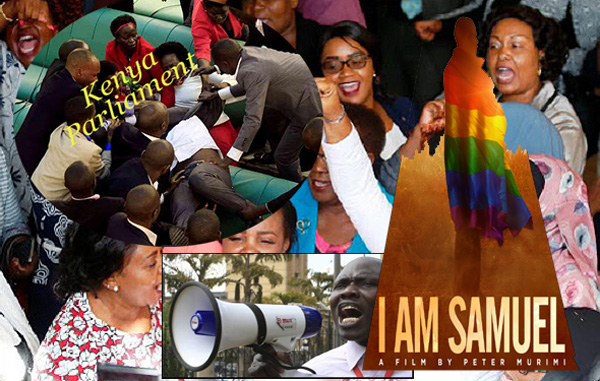 Worldwide the pandemic response was a society — like a house with windows — pulling down all its blinds. As we cautiously pry open the levers what will we see?
Worldwide the pandemic response was a society — like a house with windows — pulling down all its blinds. As we cautiously pry open the levers what will we see?
In the developing world we’ll see how young societies fared without the heavy influence of world powers. In normal prepandemic times there was hardly a move that an African government made without first running it by a host of global powers. That didn’t happen the last two years.
Global powers hold the developing world’s purse strings. Especially with the western powers enormous latitude was allowed with proffered funds, but it was never unclear that future payments weren’t guaranteed without mission performance. This dynamic developed from the huge tragedies of the 1980s and early 1990s when the Cold War motivated western powers to intentionally not seek accountability for their aid.
Aid didn’t entirely dry up during the pandemic, but it wasn’t monitored as carefully as prepandemic. The actual pullbacks in aid and the looseness of accountability for that which continued to flow was exacerbated by the crazy politics that emerged simultaneously during the pandemic. Trump didn’t have to try, but flaunted mispronouncing “Namibia.”
That was the rich world’s attitude to the developing world during the pandemic: Sarcastic neglect.
Well the skies are clearing. What do we see? Kenya is a perfect example.
First of all I think Kenya and every other recipient of rich world aid knows the spigot is unlikely to be thrust as full on as it was three or four years ago. Secondly they’ve learned to live without it and surprise, they’ve survived.
None of this means developing countries should be denied aid. The future of the world as a whole depends upon achieving some type of economic equanimity between the rich and the poor. But that’s for the next generation, I guess. It’s not happening soon, and Kenya and every other developing society knows it.
Kenya remains one of the most racist societies on earth, and dear white reader I don’t mean white vs. black. Kenya’s tribal identities are first and foremost in the mind of every politician, business person and even academic. It’s way beyond any tiny individual opposition that begs weakness because the greater society is so set in its ways. Every tiny individual’s thoughts and actions in Kenya are governed by her tribe.
We see this right now manifest in the fight going on between Kenya’s three “democratic” branches of government.
The President, a Kikuyu from the lush highlands of Kenya, is at laughable odds with Parliament (which perforce is far from Kikuyu and mostly controlled by desert tribes) and the Judiciary which is dominated by the Arab-leaning coastal tribes.
It’s a tidy split but it’s stripped the clothes off the Kenyan King.
Today the High Court announced with no legal basis that its choice of nominees would be seated as judges even if the President doesn’t nominate them. PS that’s unconstitutional.
Throughout the pandemic Parliament has tried – and failed – to reverse the gender rule inscribed in the constitution which governs the gender minimums required in both elective and nominative government institutions. PS it would be unconstitutional.
So instead the politicians are just ignoring the rule (PS…), both in terms of nominations for office and bureaucratic posts appointed by all branches of government. This patent disregard of the constitution says it all: the constitution doesn’t mean anything.
The constitution was a western world construct. The framework was forced on Kenya by Britain and the U.S. to end a little but real civil war following 2007 elections, and plenty of time has passed so that Kenyans themselves could modify it. Trouble is they don’t follow what they modify.
So what exists today in Kenya is a hodgepodge of competing tribal interests manifesting publicly in the institutions of government all three of which defy their own constitution.
Here’s the troubling thing. It seems to be working.
I can’t explain it, being an addict of law and order and constitutional preeminence, but Kenya’s not so bad off at the moment. The individual controversies related in western ways paint near mayhem. But the truth of daily life is quite different.
Take, for example, the announcement today that the percentage of woman board chairpersons of private Kenyan companies (37%) is way above the world average (3%) and far above the U.S. (11%). If you’re worried that an African board room has subtle ways of suppressing women, note that the Kenyan percentage of women board chairpersons surpasses global and U.S. percentages similarly.
At the same time this progressive reality about male/female gender roles is eclipsed by a super conservative movement in Kenya against LGBTQ+ issues.
Last month Kenyan banned another award winning coming-out movie, I Am Samuel. This is only the most recent of a number of famous similar African movies selling out box offices when they’re allowed to.
So how is this “working”?
The conflicts are so stark that in murky, terrifying America they split into the two completely separate worlds: Two completely different cultures that don’t talk to one another, have their own cable networks and social media followings leading to radically different but completely believed diametrically opposed realities.
That’s not happened, at least yet in Kenya. The radically opposing sides all agree on the facts. They seem to be able to handle the disputes without resorting to lying about them. The “working” might be unconstitutional, patently generational and racist, but everyone agrees with that. Labels and symbols are discarded (since they’re mostly western constructs, anyway). Nobody claims vaccines cause cancer except in a comedy club.
Reality is messy. I’m beginning to wonder if that’s why we don’t have it any longer in America. We can’t stand a single spot on the commode.